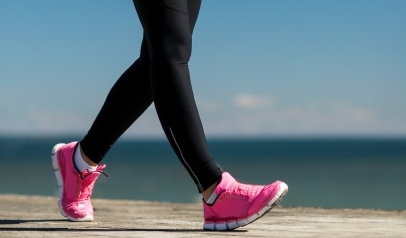Venous disease can cause varicose veins in your legs and a host of other symptoms, including venous ulcers. A venous ulcer is a lesion or sore on the skin that doesn’t heal properly. Venous ulcers are more common in older people, but anyone with venous disease can develop them.
Causes of venous ulcers
Venous disease prevents blood from returning to your heart efficiently, causing it to back up and pool in the veins in your legs. When the blood pools, it put pressure on the veins, which can cause fluid to ooze out of the veins and into the surrounding tissues. Over time, the fluid can damage and break down the tissues, resulting in an ulcer on the surface of the skin.
People with venous ulcers might also experience thickening and discoloration of the skin, which is also caused by the fluid from the veins.
How to effectively treat venous ulcers
Regular bandages over the skin sores will make you more comfortable and help prevent the ulcers from becoming infected, but they won’t heal them. The key to treating and healing venous ulcers is to prevent the blood from pooling in your veins so that the fluid does not ooze out and damage the surrounding tissues. There are a few ways you can treat the underlying problem that causes venous ulcers, including:
1. Compression bandages and stockings
Your veins rely on muscle contractions to squeeze the veins and help push blood through your body. If your veins are not performing these contractions efficiently on their own, compression bandages or stockings perform the same squeezing action as your leg muscles to prevent the blood from pooling in your veins.
The bandages are applied tighter at the lowest point on your leg, usually the ankle, and then gradually loosen as you move up the leg. The point is to make the bandage tight enough to stimulate the veins, but not so tight that you can’t move your foot or cut off circulation. If you notice your foot changing color, you need to loosen the bandage. If you have not been shown how to wrap compression bandages, you should consult a medical professional before using them. Using them incorrectly could cut off your circulation, and make your condition worse.
If you want to try compression therapy on your own, you can purchase compression stockings which are available through medical supply stores. Compression stockings do not provide as much pressure as the bandages, but you are also less likely to over-wrap and cause further problems.
2. Elevation
In addition to using compression bandages or stockings, your doctor will likely advise you to elevate your legs as much as possible (whenever you are sitting down). Elevating your legs uses gravity to keep your blood flowing in the right direction. Elevation can also bring down swelling and relieve pressure in your veins.
Your legs should be higher than hip level and you can prop them up on cushions to achieve the desired height. You can also lie on your back with your legs propped up the wall for even more elevation.
3. Exercise
If you have leg pain, or if your legs feel tired and heavy, exercise can help a lot. Exercise causes your leg muscles to contract, which helps push the blood through your veins. A regular routine of moderate exercise, such as 30 minutes of walking every day, can actually help relieve the pressure that causes venous ulcers.
The combination of compression, elevation and exercise can usually help heal venous ulcers within 12 weeks. Quitting smoking and improving your diet can also help the healing process. Cigarette smoke contains chemicals that can interfere with circulation and wound healing, and a poor diet can rob you of the nutrients you need for effective healing.
If these therapies do not work, your doctor might recommend a vein procedure or vein surgery to remove the faulty vein or veins. In some cases, skin grafts may be used to repair the damaged, ulcerated skin.
Reviewed February 10, 2017


